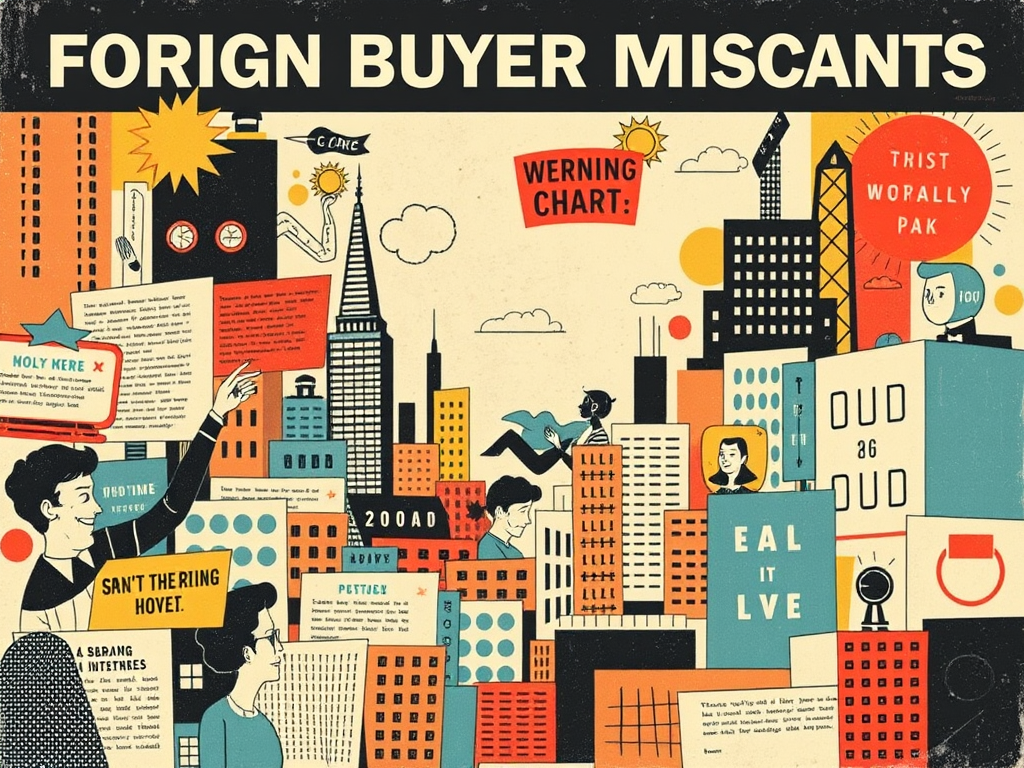
Economic Impact of Greece’s Golden Visa: Real Estate Market and Beyond
Reading time: 15 minutes
Table of Contents
- Introduction to Greece’s Golden Visa Program
- The Greek Real Estate Market: A Golden Opportunity
- Economic Ripple Effects
- Labor Market Dynamics
- Challenges and Criticisms
- Future Outlook and Potential Changes
- Conclusion
- FAQs
1. Introduction to Greece’s Golden Visa Program
Greece’s Golden Visa program, introduced in 2013, has become a pivotal economic strategy, attracting significant foreign investment and reshaping the country’s real estate landscape. This residency-by-investment scheme offers non-EU nationals the opportunity to obtain Greek residency through substantial property investments, typically a minimum of €250,000 in real estate.
As we delve into the economic impact of this program, it’s crucial to understand its multifaceted effects on Greece’s economy, particularly in the real estate sector and beyond. The Golden Visa initiative has not only bolstered the property market but has also had far-reaching implications for various economic indicators, including employment, tourism, and foreign direct investment (FDI).
2. The Greek Real Estate Market: A Golden Opportunity
The introduction of the Golden Visa program has been a game-changer for the Greek real estate market. Let’s examine the key trends and impacts:
2.1 Property Price Dynamics
Since the program’s inception, property prices in key urban areas and popular tourist destinations have seen significant appreciation. Data from the Bank of Greece indicates that residential property prices in Athens have increased by an average of 7.5% annually since 2017, outpacing the national average.
This price surge has been particularly pronounced in areas favored by Golden Visa investors, such as the southern suburbs of Athens, the islands of Mykonos and Santorini, and parts of Thessaloniki. The demand from foreign buyers has created a buoyant market, even during periods of broader economic uncertainty.
2.2 Investment Volumes and Patterns
The Golden Visa program has channeled substantial foreign investment into Greek real estate. According to data from the Greek Ministry of Migration Policy, the program has attracted over €2 billion in property investments since its inception. The year 2019 saw a record high, with investments exceeding €750 million.
Interestingly, the investment patterns have evolved over time. Initially concentrated in residential properties in Athens and Thessaloniki, there’s now a growing trend towards commercial real estate and properties in emerging tourist hotspots.
2.3 Market Segmentation and Buyer Profiles
The Golden Visa program has led to a notable segmentation in the Greek real estate market. High-end properties, particularly those priced above €250,000, have seen increased demand from non-EU buyers seeking residency. This has created a distinct luxury segment in the market, characterized by premium amenities and locations.
The buyer profile has also diversified. While Chinese investors initially dominated, there’s been a growing interest from Middle Eastern, Russian, and Turkish buyers. Each nationality tends to favor different regions and property types, further shaping market dynamics.
3. Economic Ripple Effects
The impact of the Golden Visa program extends far beyond the real estate sector, creating significant ripple effects throughout the Greek economy.
3.1 Foreign Direct Investment (FDI)
The program has been a major driver of FDI into Greece. According to the Bank of Greece, real estate-related FDI has grown from €186 million in 2013 to over €1.45 billion in 2019, accounting for a substantial portion of total FDI inflows. This influx of foreign capital has been crucial in supporting Greece’s economic recovery post-financial crisis.
3.2 Construction and Related Industries
The surge in property demand has reinvigorated the construction sector, which had been in decline following the 2008 financial crisis. Data from the Hellenic Statistical Authority shows that construction activity, measured by the number of building permits issued, has increased by 45% since 2016. This revival has had positive spillover effects on related industries such as building materials, interior design, and real estate services.
3.3 Tourism and Hospitality
The Golden Visa program has indirectly boosted Greece’s tourism sector. Many visa holders use their properties as vacation homes, leading to increased high-end tourism. This has spurred development in luxury hospitality services and has contributed to extending the tourist season beyond the traditional summer months.
4. Labor Market Dynamics
The economic activities generated by the Golden Visa program have had notable impacts on Greece’s labor market:
4.1 Job Creation
The revitalization of the real estate and construction sectors has led to significant job creation. The Greek Ministry of Labor estimates that for every €1 million invested in real estate, approximately 50 jobs are created or sustained. With over €2 billion invested through the Golden Visa program, this translates to an estimated 100,000 jobs.
4.2 Skill Development and Specialization
The influx of high-net-worth individuals has created demand for specialized services, leading to skill development in areas such as luxury property management, international real estate law, and multilingual customer service. This has contributed to enhancing the overall skill set of the Greek workforce in these sectors.
4.3 Wage Pressures
In certain segments of the real estate and related industries, the increased activity has led to upward pressure on wages. This is particularly evident in specialized roles such as real estate agents dealing with international clients and architects focusing on luxury property design.
5. Challenges and Criticisms
While the Golden Visa program has brought significant benefits, it has also faced challenges and criticisms:
5.1 Housing Affordability Concerns
The surge in property prices, especially in popular areas, has raised concerns about housing affordability for local residents. In some neighborhoods of Athens, rental prices have increased by up to 30% since 2016, potentially displacing long-term residents.
5.2 Money Laundering Risks
There have been concerns about the program being used for money laundering. In response, the Greek government has implemented stricter due diligence procedures, but critics argue that more robust checks are needed.
5.3 Uneven Development
The concentration of investments in certain areas has led to uneven development across the country. While Athens and popular islands have seen significant growth, other regions have not benefited as much from the program.
6. Future Outlook and Potential Changes
Looking ahead, several factors are likely to shape the future of the Golden Visa program and its economic impact:
6.1 Regulatory Changes
The Greek government is considering raising the minimum investment threshold to €500,000 for properties in certain high-demand areas. This change aims to address affordability concerns and redirect investments to other regions.
6.2 Diversification of Investment Options
There are discussions about expanding the program to include other forms of investment, such as bonds or business ventures, to broaden its economic impact.
6.3 Global Economic Factors
The program’s success will continue to be influenced by global economic conditions, geopolitical factors, and competition from similar programs in other countries.
7. Conclusion
Greece’s Golden Visa program has undeniably been a significant economic catalyst, particularly for the real estate sector. It has attracted substantial foreign investment, revitalized the construction industry, created jobs, and contributed to the country’s economic recovery. However, it has also brought challenges, including housing affordability issues and concerns about uneven development.
As Greece continues to navigate its economic trajectory, the Golden Visa program remains a powerful tool for attracting foreign capital. Its future success will depend on how well the government can balance the benefits of foreign investment with the needs of local communities and address the challenges that have emerged.
For those considering buying real estate in greece, the Golden Visa program offers an attractive pathway to residency. However, potential investors should carefully consider the evolving regulatory landscape and market dynamics.
In the broader economic context, the program serves as a case study in how targeted investment schemes can impact national economies. As Greece moves forward, the lessons learned from this initiative will likely inform future economic policies and investment strategies.
8. FAQs
Q1: How has the Golden Visa program affected property prices in Greece?
A1: The program has significantly boosted property prices, especially in popular areas like Athens and certain islands. Since 2017, residential property prices in Athens have increased by an average of 7.5% annually, outpacing the national average.
Q2: What are the main criticisms of the Golden Visa program?
A2: The main criticisms include concerns about housing affordability for locals, potential money laundering risks, and uneven development across different regions of Greece.
Q3: How has the program impacted Greece’s job market?
A3: The program has led to significant job creation, particularly in real estate, construction, and related services. It’s estimated that for every €1 million invested, about 50 jobs are created or sustained.
Q4: Are there plans to change the Golden Visa program in the future?
A4: Yes, the Greek government is considering raising the minimum investment threshold to €500,000 in high-demand areas and potentially expanding investment options beyond real estate.
Q5: How does Greece’s Golden Visa program compare to similar programs in other countries?
A5: Greece’s program is competitive due to its relatively low investment threshold (currently €250,000) compared to some other European countries. However, it faces competition from similar programs in countries like Portugal and Spain, which offer different benefits and investment options.

Article reviewed by Mehmet Yılmaz, Business Transformation Leader | Operational Excellence Architect, on March 25, 2025



